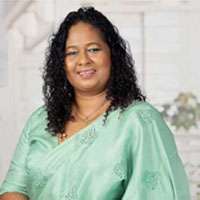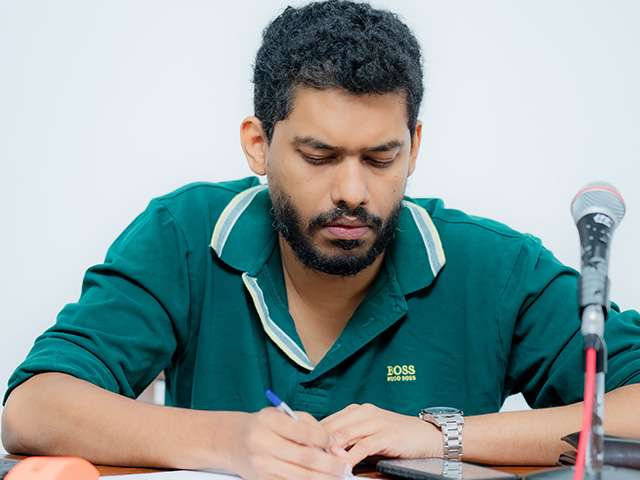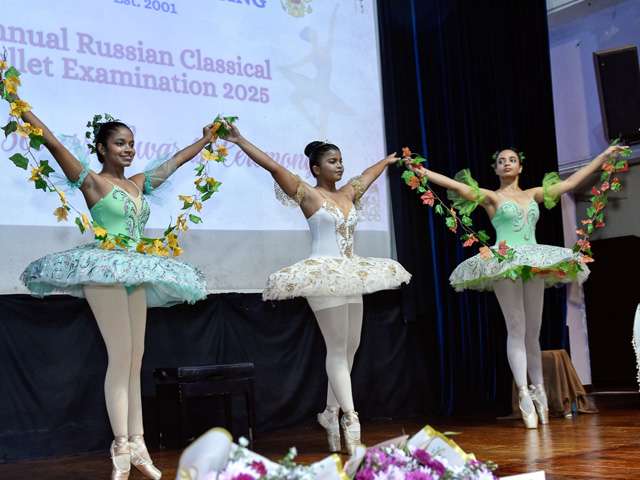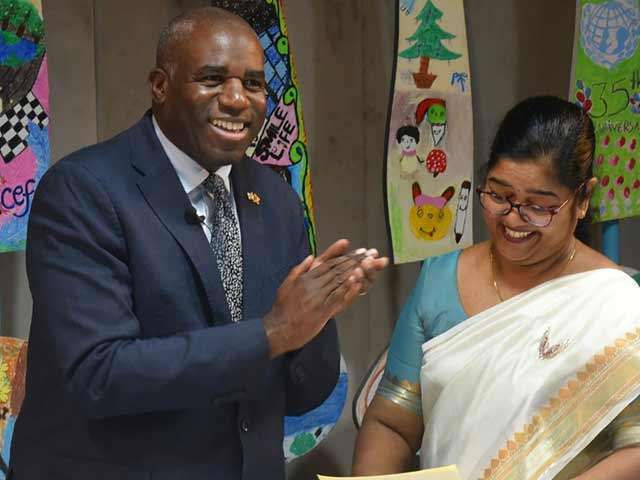Nilrukshi De Silva: Leading with Vision, Resilience and Purpose
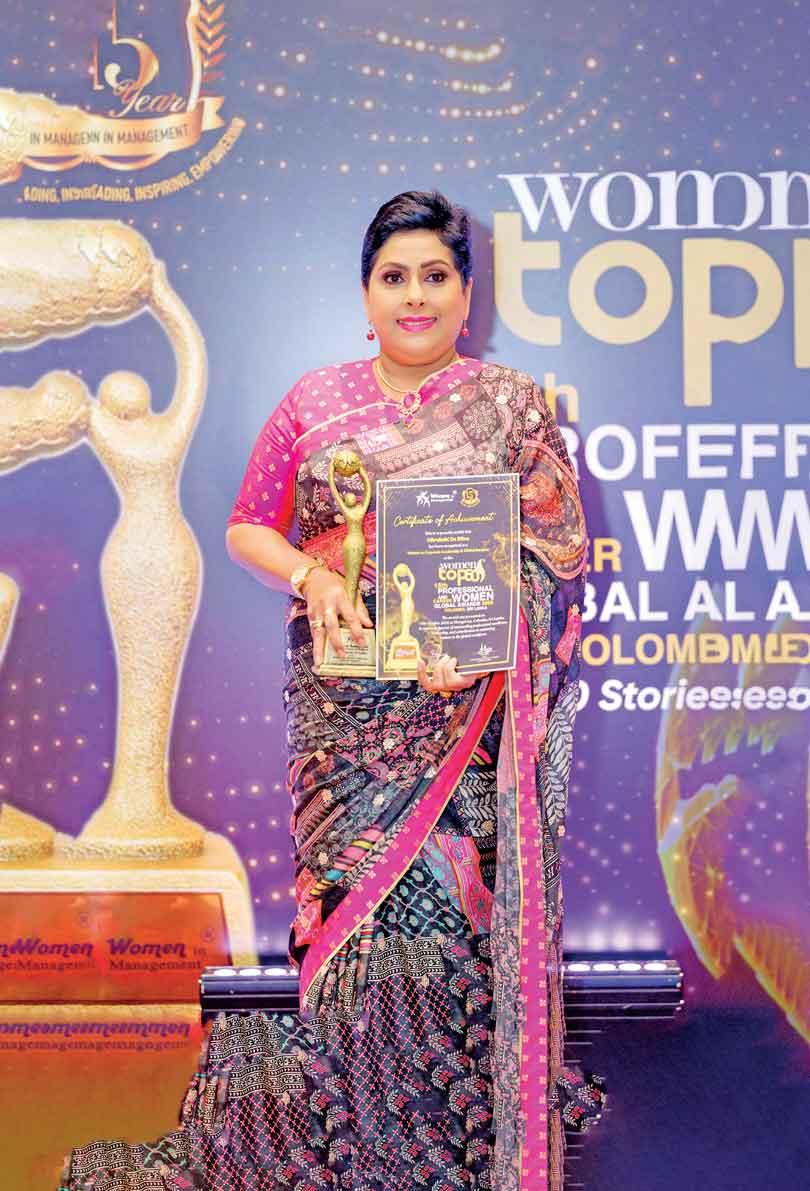
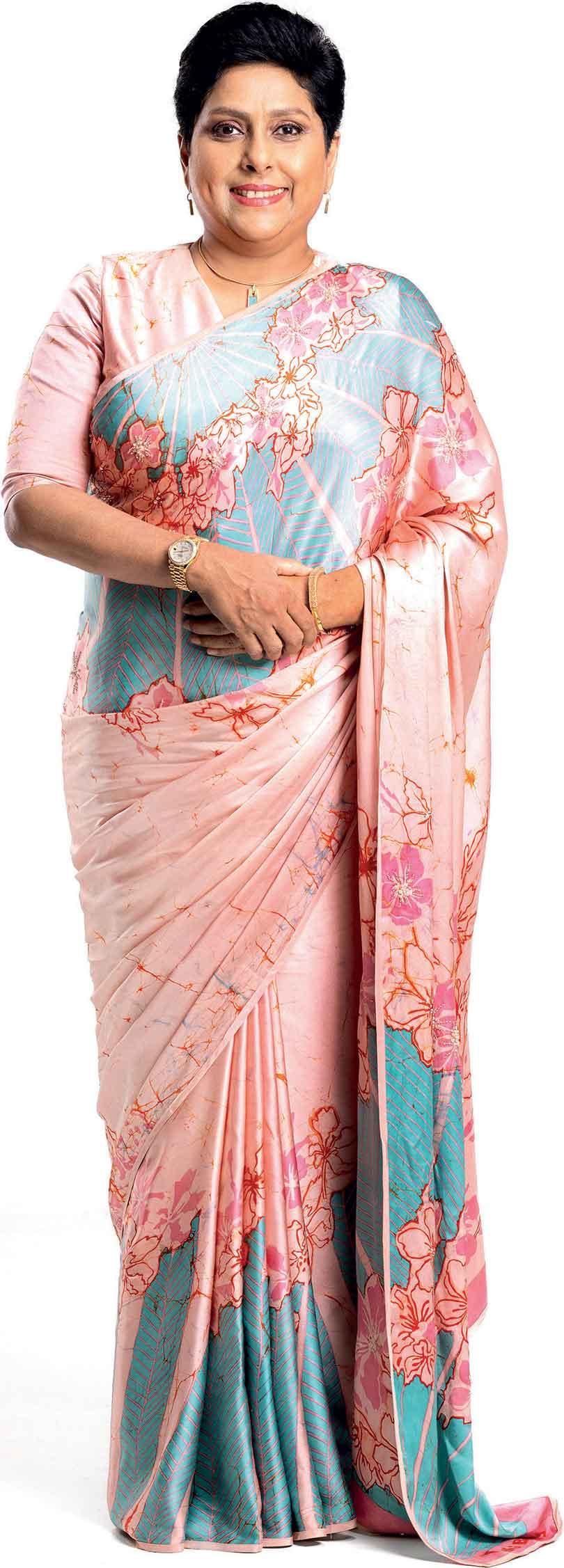
 In a world shaped by rapid transformation, shifting power dynamics and constant economic pressure, leaders who can rise above complexity and guide organisations with clarity have become invaluable. Nilrukshi De Silva is one such leader. As the Senior Vice President of Macksons Holdings Group of Companies, the Vice President of Macksons Power and Energy Private Limited, and a Director at The House of Gifts, she oversees a portfolio that spans manufacturing, energy, retail and international business development. Her career journey reflects steady ambition, thoughtful decision making and an unwavering commitment to excellence. She was named one of the Global CEO Top Businesswomen in 2025 and is a sought-after speaker at major industry events including the CIM CXO Forum. In this exclusive interview, Nilrukshi shares the defining moments that shaped her career, her insights on global competitiveness and her reflections on what it truly takes to succeed as a woman in senior leadership today.
In a world shaped by rapid transformation, shifting power dynamics and constant economic pressure, leaders who can rise above complexity and guide organisations with clarity have become invaluable. Nilrukshi De Silva is one such leader. As the Senior Vice President of Macksons Holdings Group of Companies, the Vice President of Macksons Power and Energy Private Limited, and a Director at The House of Gifts, she oversees a portfolio that spans manufacturing, energy, retail and international business development. Her career journey reflects steady ambition, thoughtful decision making and an unwavering commitment to excellence. She was named one of the Global CEO Top Businesswomen in 2025 and is a sought-after speaker at major industry events including the CIM CXO Forum. In this exclusive interview, Nilrukshi shares the defining moments that shaped her career, her insights on global competitiveness and her reflections on what it truly takes to succeed as a woman in senior leadership today.
What pivotal moment shaped your career the most?
The moment that changed everything for me was the decision to step away from the comfort and predictability of banking and embrace a leadership role within a diversified conglomerate. Banking had shaped my early professional identity. It was structured, disciplined and well regulated. I knew the parameters and I understood the rhythm of the industry. Moving into a role where I suddenly had to think across multiple businesses, lead large and diverse teams and guide long term strategic growth was a complete shift. It demanded a broader vision and a deeper sense of responsibility. That transition challenged me in ways I had never experienced before. It pushed me to expand my leadership capacity rather than rely on my technical abilities alone. Looking back, that step into uncertainty was the most defining moment of my career because it opened the path to every opportunity that followed.
What helped you transition from banking to senior leadership at Macksons?
Two qualities supported that transition more than anything else. The first was a growth mindset and the second was adaptability. My years in banking gave me strong analytical capability, an instinct for risk management and a disciplined work ethic. These strengths became an excellent foundation. Leadership at Macksons required additional abilities. I needed to refine my strategic vision, build confidence in making decisions without complete information and develop a leadership style that inspired people from different sectors and backgrounds. I learned very quickly that senior leadership is not only about understanding the numbers. It is about guiding people, shaping culture and aligning teams with a long-term purpose. By integrating my financial expertise with a broader leadership perspective, I was able to navigate the move with confidence and make a meaningful contribution to the organisation.
As Senior Vice President, what priorities guide your strategic decisions?
My approach to strategy is always guided by balance. I constantly weigh the realities of today against the possibilities of tomorrow. Three priorities are central to every decision I make. The first is long term financial sustainability. Organisations must build strength for the future rather than chase short lived gains. The second is disciplined investment. Resources must be allocated with intention and clarity so that every investment contributes to growth and competitiveness. The third priority is the cultivation of strong global partnerships.
International collaboration opens doors to new markets, new technologies and new perspectives. When these three priorities come together, they create a strategy that is both ambitious and resilient. In a rapidly evolving economic landscape, that resilience is essential.
As former President of the Sri Lanka Malaysia Business Council, where do you see the biggest opportunity for bilateral trade?
The greatest opportunity lies in value added collaboration rather than in traditional buying and selling. Sri Lanka and Malaysia both have strengths that complement each other exceptionally well. Sri Lanka has a strong manufacturing base and a skilled workforce. Malaysia has advanced technological capabilities and a mature innovation ecosystem. When these strengths combine, the potential becomes remarkable. Sectors such as renewable energy, advanced building materials, information technology services and export focused manufacturing offer enormous opportunities. The true transformation will happen when both countries move away from operating in silos and begin co creating solutions. Collaboration of this nature strengthens supply chains, improves competitiveness and leads to sustainable long term trade relationships.
How has your work with the National Chamber of Exporters influenced your views on global competitiveness?
My involvement with the National Chamber of Exporters constantly reinforces one important truth. Being good enough is not sufficient in global markets. Competing internationally requires creativity, courage and continuous improvement. Sri Lankan businesses must diversify the markets they serve, invest in new product development and strengthen their digital capabilities. Branding also plays a vital role. A strong and authentic brand can elevate a product in ways that technical quality alone cannot achieve. At the same time, competitiveness cannot rest solely on the shoulders of individual companies. It requires policy support, stable regulation and a strong partnership between the private sector and the government. Global competitiveness is a deliberate ecosystem. It emerges when every part of that ecosystem works together with intention.
How is the global financial landscape evolving and what should businesses prepare for?
We are experiencing a structural shift in global finance. Digital transformation is accelerating. Environmental, social and governance standards are becoming a central requirement rather than an optional consideration. International trade flows are being reshaped by geopolitical changes. Businesses must be prepared for a world where financial systems are driven by artificial intelligence, where compliance is more stringent and where economic uncertainty influences investment decisions. The organisations that succeed will be the ones that act now. They will invest in technology, strengthen governance, build organisational resilience and develop leaders who can navigate ambiguity. The next decade will reward those who prepare early and adapt continuously.
What challenges and opportunities do women in senior management face today?
Women in leadership roles face a unique combination of expectations and pressures. There is often a greater level of scrutiny on their decisions, their leadership style and even their personal choices. The feeling of having to prove oneself repeatedly is something many women can relate to. At the same time, this is a moment of significant opportunity. Organisations are actively seeking diverse leadership.
They recognise that women bring emotional intelligence, collaborative thinking and resilience, qualities that modern workplaces increasingly value. The challenge and the opportunity exist together. Women must navigate the expectations placed upon them while also embracing the fact that their strengths are essential for the future of leadership.
What is your advice to women who feel pressured by external judgments in leadership roles?
My advice is to anchor yourself firmly in your competence and your values. External opinions will always exist. There will always be commentary about your leadership style, your decisions or even the tone with which you speak. You cannot control those perceptions. What you can control is the quality of your work and the strength of your purpose. When you lead with integrity, clarity and confidence, the external noise becomes far less influential. Focus on what you bring to the table. Focus on the impact you create. When your foundation is strong, external judgment stays where it belongs which is in the background.
How can organisations address stereotypes that affect women’s advancement?
Real change happens when systems change. It cannot rely on slogans or symbolic gestures. Organisations must create structures that minimise bias and reward genuine merit. This includes transparent promotion processes, equal access to high impact projects, leadership development programmes and fair representation in decision making spaces. Culture is important, but systems shape culture. When the systems are fair and consistent, the cultural shift follows more rapidly. When organisations commit to structural fairness, women do not simply rise because someone wants them to. They rise because they have earned it and because the environment allows their talent to be recognised.
How can women leaders create stronger solidarity and mentorship among women?
Solidarity grows when women make a conscious decision to support one another. This means sharing opportunities rather than competing for them. It means speaking the name of a talented colleague in a room where she is not present. It means taking time to mentor younger women and guiding them through the challenges of leadership. Many women lead quietly. They do the work without seeking visibility. When women leaders use their influence to bring visibility to others, the entire leadership landscape begins to change. Solidarity is powerful. It not only uplifts individuals but strengthens the collective presence of women in leadership across industries.
Rapid Fire
- Leadership in one word: Courage
- A trait to unlearn: Micromanagement
- Staying calm under pressure: Pause and breathe
- Productivity habit: Morning planning
- A mentor who shaped you: Mizver Makeen (my Managing Director)
- A misconception about you: Unapproachable
- Best advice received: Lead with compassion
- Corporate buzzword to ban: Synergy
- Country you would love to work from for a month: Greece
- If not finance: Impact enterprise

